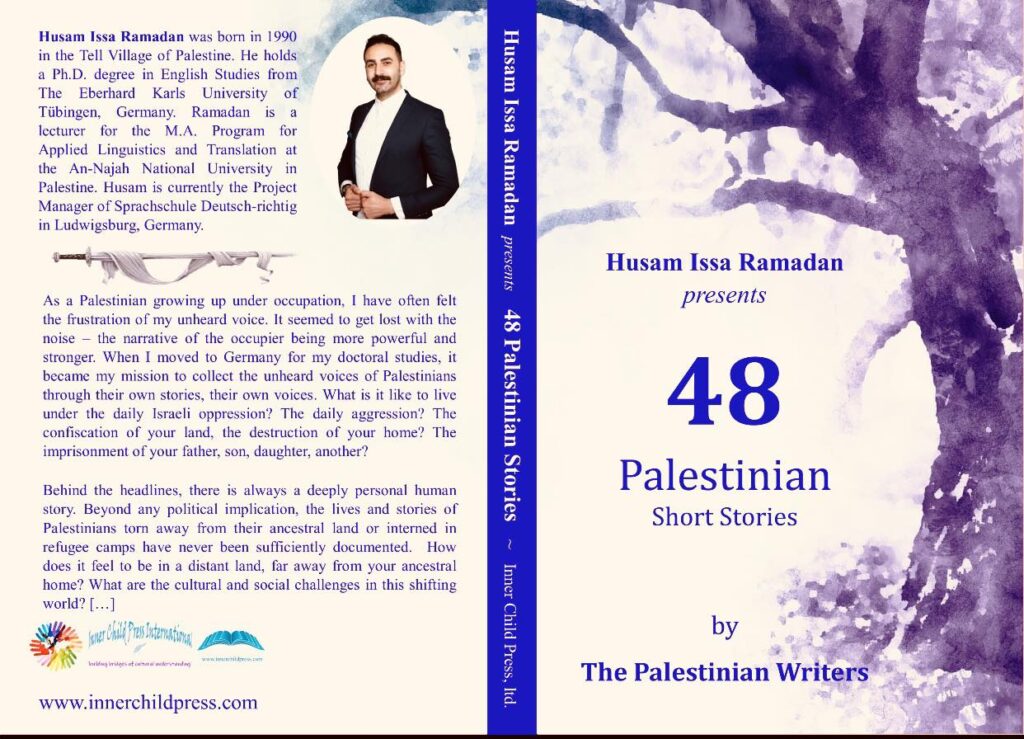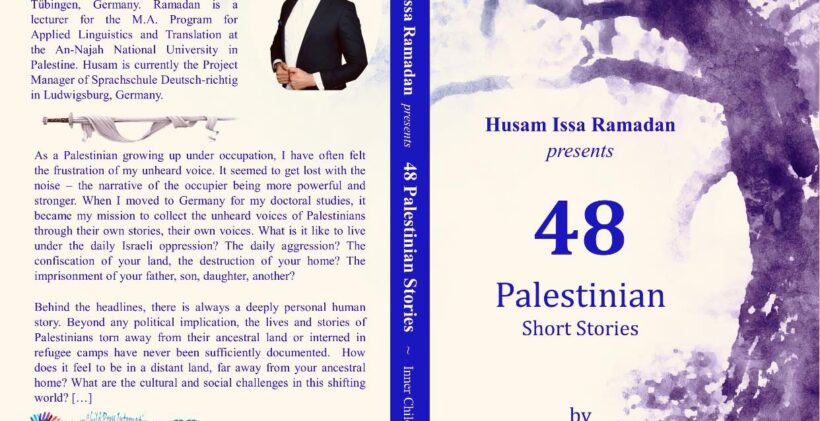
Foreword by Professor Jamal Assadi
The book, 48 Palestinian Short Stories by Husam Issa Ramadan is not just a collection of translated stories by Palestinian writers. It represents a significant effort by Husam Ramadan and others involved in its production. The number “48” holds special significance as the year when Palestinians lost their homeland and faced immense challenges and lost opportunities. This event, known as An-Nakbah or catastrophe, is deeply ingrained in Palestinian history. By choosing this title, Mr. Ramadan aims to etch that date into the memory of not only Palestinians but also readers of English worldwide.
The book serves as a reminder that the Palestinian cause remains unresolved, and the Palestinian people continue to endure under a severe occupation. Despite claims of freedom and justice in the 21st century, Palestinians witness their lands, culture, customs, and environment being exploited by others. The selection of the eighty-four short writers in the book does not prioritize fame or popularity. Instead, it aims to provide a representative collection of their works, showcasing diverse themes, styles, contexts, imagery, tones, and languages.
Arranged alphabetically, the writers offer a faithful portrayal of various aspects of Palestinian Arab life within Palestinian societies, both at home and in the diaspora. Their stories depict the fusion of opposing elements in the struggle for dignity, freedom, and justice. Within this volume, readers will encounter stories that range from serious to light-hearted, sensual to spiritual, and personal to political. Each story presents a unique focus in terms of theme, imagery, style, and language.
What sets these Palestinian writers apart is their ability to challenge norms, fight oppression, and share their own stories—the narratives of their struggles, alienation, marginalization, and hopes and dreams—with a powerful voice. Initially addressing their community, they now can reach a wider English-speaking audience. The stories vary in length, but all are exciting, inspiring, and gripping. The language is eloquent, and the style is direct, bold, and captivating. Casual readers will appreciate the richness of a different culture, while scholars of Arabic literature will find new avenues for academic exploration and critique.
As Palestinian Arab writers rewrite their own narratives and move from the margins to the forefront of the world stage, Palestinian fiction, characterized by its breadth of topics, richness of meaning, exquisite expression, vivid imagery, tenderness, and smooth flow, has the potential to make its mark on the global stage, becoming part of the vast and diverse residence of human civilization.
